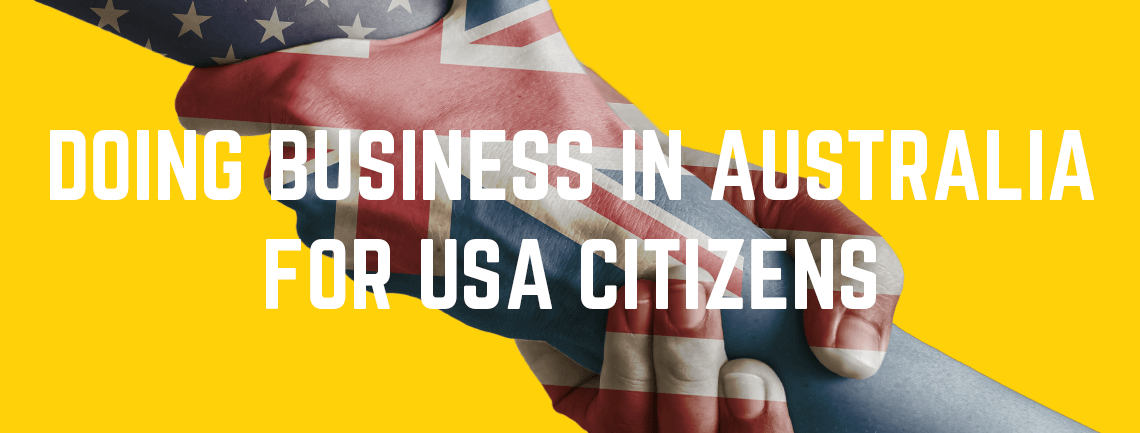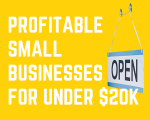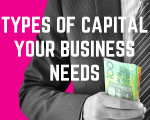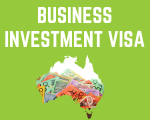Doing Business in Australia for USA Citizens
December 11, 2018Australia has one of the world’s most stable economies, which makes the Land Down Under a perfect opportunity for foreign investments. Thanks to the Australia-United States Free Trade Agreement (AUSFTA), Australia is the perfect country for businessmen from the United States to expand their business in new markets or invest their capital in Australian companies.
With an increase of 7% in US investments for the last five years, investments from the USA are growing steadily and more US businesses are entering the Australian market. Just in 2017 investments from the United States hit an all-time high of A$896,000,000,000 (approx. US$645,030,400,000) dwarfing the second place investors by double.
Table of Contents
- Why Choose Australia to Do Business
- Business Legalities
- Business Etiquette in Australia
- Where to Begin?
- How Fantastic Services Can Help You
Why Choose Australia to Do Business
US and Australian markets have a lot in common. Like the States, the majority of the Australian population is living in urban areas, foreign investors can focus their time and money in the four biggest cities – Sydney, Melbourne, Brisbane and Perth.
The similarities in both markets make it easier for already existing U.S. companies to expand and conduct business in Australia. So, let’s take a look at how Australia compares to the States.
Population
Australia has a population of 24,000,000 people and a yearly growth rate of 1.32% with the median age of Australians being 37.5 years.
Just like the States, Australia’s multicultural society makes the continent very culturally diverse. In total 200 languages and dialects are spoken with approximately one in four Australians being born overseas.
Lifestyle
Australia is a country known for its laid back, easy going lifestyle. On top of that, we have one of the best lifestyles in the world with extensive healthcare, quality housing and a normal cost of living.
Thanks to the lifestyle Australia is one of the modern western countries having most migrants. The biggest concentration of US-born citizens in Australia is in Sydney and Melbourne, closely followed by Perth.
Climate
Australia is a continent in the southern hemisphere, which makes the summer season down here from December to February – the opposite of USA. This is a window of opportunity for seasonal businesses, as you will be able to have a year-round cash flow.
The weather is pretty much the same throughout the whole continent. January is the hottest of the Summer months with average 28°C (82°F).
Winter temperatures in Australia get as low as 11°C (52°F) with a lot of rainfall, and rarely snowfall.
Economy
Australia is known for having one of the world’s strongest economies. This is what makes the country so interesting for foreign investors – the market is steady and it has been growing continuously for the last 26 years!
Our economy is also characterised by its high productivity levels. Australia’s rating is above the global average in 15 out of 20 industries.
The unemployment rate in Australia fluctuates around 5.4% and 5.6%, however, according to Craig James, the reason that it doesn’t drop is that more people are entering Australia looking for jobs.
Workforce
Because of the multicultural nature of the Australian population, our country offers a multilingual and skilled workforce. Around 50% of people have a higher education and approximately 15% of the population speaks more than one language.
Business Legalities
Starting a business in Australia, or acquiring one requires you to deal with some type of business legalities. Either choosing the proper business structure, acquiring the right visa or sorting out taxes.
Business Structures
If you’re planning on doing business in Australia you will have to be or become one. To conduct business here, you will have to register as a sole trader, company, joint venture or a partnership.
The different structures will suit different businesses and often times they can help or hurt a companies growth.
Sole Trader
Also known as Sole Proprietorship this is the simplest business structure. There is no other legal entity other than the individual, and this also makes it personally liable. If you’re moving to Australia and you want to do business here, registering as a sole trader is a perfect structure if you’re looking to start small.
Partnership
A partnership can be formed by both individuals and companies. Two or more individuals or companies establish a partnership with a partnership agreement.
A partnership isn’t a separate legal entity each company or individual is liable. Partners share profits and liability for all obligations of the partnership.
Joint Venture
Joint ventures are two or more individuals or companies that are in an agreement to work towards a common goal.
These ventures can be incorporated as a separate legal entity or unincorporated (simply a contractual agreement).
Company
When you’re registering as a company you can conduct business in Australia and it’s considered a separate legal entity. A company can hold assets in its name, and if it’s made public it can be listed on the Australian Securities Exchange.
As an Australian company, you must have a registered business in Australia, Australian residents as directors and an Australian resident for a company secretary.
Foreign Companies
You can conduct business in Australia as a foreign company, however, you must register as such with ASIC. To be able to legally carry on business in Australia you must either have an Australian branch or an Australian subsidiary.
Investment
US-Australian investments have quite a bit of history as the United States is the largest foreign investor in Australia.
All foreign investments are examined by The Foreign Investment Review Board (FIRB) and they work closely with the Australian Treasurer for all foreign investment decisions. In order for a foreign investment proposal to be approved, it should meet the “national interest”. This “national interest” is not defined and has a flexible meaning depending on the circumstances.
This is the so-called “notification of approval” and for most investments, you will have to notify FIRB.
Visas
Australia offers a couple of different visas regarding investing and you can apply for both provisional and permanent visas as long as you meet the requirements.
Investor Visa (subclass 891)
In order to obtain an investor visa you will need a history of investments in Australia and to have held a Provisional Investor Visa (subclass 891).
Another requirement for the Investor Visa is to own in your, or your partner’s name a designated investment in Australia of A$1,500,000 (approx. US$1,079,850).
For more in-depth information about the Investor Visa (subclass 891), cost and requirements read here.
Business and Investment Visa
This type of visa is suitable for people looking forward to investing in Australian businesses or even own and manage one on the territory of Australia. This visa has different streams with different minimal investments.
More information about the Business and Investment Visa and the different streams can be found here.
Taxes
For foreign residents, taxes are generally withheld from interest, unfranked dividends and the royalties you earn in Australia.
You will have to inform the Australia financial institution (your payer) that you’re a foreign resident and taxes will be withheld at the time of payment.
Tax rates vary depending on what type of payment is taxed. You can view the full treaty with the United States and Australia here.
Business Etiquette in Australia
Australia is known as a laid-back country, and to an extent, this has resulted in us having our own business etiquette.
The easiest way to describe Australian business culture is collaborative, straightforward and open to new ideas.
Many times Australians take their time before they make any decisions as the business culture is collaborative. When it comes to taking decisions – Australians are fine with declining an offer or an idea or accepting one. So, you will have a straightforward answer.
When it comes to meetings, Australians value punctuality, so it’s always better to arrive early. While it’s okay to stick to the dress code of your industry, in some warmer cities Australians may come to a meeting wearing shorts and flip-flops.
If you’re invited to an after work going out keep things casual and don’t start business talks unless the counterpart does so.
For all meetings, the invitee pays the bill in restaurants and bars.
Keep greetings casual – a smile and handshake are more than enough in most occasions but keep in mind your situation.
Where to Begin?
Starting a business overseas, or investing in one isn’t an easy decision. That’s why in-depth research and even having the right partners is important. So, let’s go through what option you have if you want to enter the Australian market.
Growing Your Own Business (Registering as a Foreign Company)
If you want to register your US-based company to conduct business in Australia you will have to register with ASIC as a foreign company.
In order to make sure your application is accepted make sure the name you want to register is available. You can’t register a business with a name that contains “university”, “trust”, “building a society”, etc. unless approved by the government minister.
You will have to fill out a 402 application, and if it’s rejected you can request a refund. With your 402 application, you will have to provide a certified copy of incorporation or registration, a power of attorney in favour of an Australian resident or an Australian company, a memorandum stating the powers of certain directors and a certified copy of the entity’s constitution.
A full list and step-by-step instruction to registering your foreign business in Australia can be found on ASIC’s website.
Starting a New Business (Foreign Investment in Australia)
In order to start your own separate business in Australia, you will have to be an Australian citizen or hold a visa that allows you to start and run a business. The visas that allow you to start and run a business in Australia are either the Business Innovation and Investment visa or the Business Talent visa.
If you have obtained all the needed visas and documents you will have to obtain an ABN for your business, which is free. An ABN is an 11 digit number that identifies your company. When you apply for an ABN you can also apply for a business name and register your GST.
You can find more information about how to apply for an ABN in the Australian Taxation Office website.
When you’re starting a business you’d also want to trademark it and acquire an appropriate domain name. In 2019 it’s quite hard to develop a successful business without a good online presence. A professional website will make your company look professional and presentable. In order to register as a “.au” domain name, you will have to register through auDA.
You’d want to have your business name trademarked in order to avoid it getting used by individuals to scam people. Here in Australia, IP Australia handles trademarking, so you should contact them for more information on which type of trademark would be most suitable for you.
The full in-depth process of starting a business in Australia as a foreigner can be found here.
Buying a Business (Acquiring an Australian Company)
Acquiring an Australian company, or a substantial share in one requires you to be approved by FIRB. Depending on the sector that you’re investing the threshold varies.
You can learn all the information about US exemptions and monetary thresholds in the Foreign Investment Review Board’s website.
Investing in a Franchise Overseas
Investing in a franchise is much like starting a business. In order to buy a franchise, you will need a visa, as you’re establishing a new business under a franchise brand. If you’re buying a franchise with a partner, then they will have to be an Australian citizen and be the main shareholder of the business.
Choosing the proper franchise is also important. Having a strong and dependable franchisor can be the difference between growing a successful franchise business or failing.
How Fantastic Services Can Help You
Becoming one of the many American investors in the Australian economy is an amazing opportunity to grow a company overseas. Investing in one of our Fantastic franchise opportunities is a chance for you to grow a home service business in one of the strongest economies in the world.
If you’re interested to start a gardening, handyman, cleaning, rubbish removal or pest control business in Australia, contact us.
Related:
- How to Start a Landscaping Business in Australia
- How to Become a Handyman in Australia
- How to Start a Gardening Business
- How to Start a Cleaning Business in Australia
- How to Start a Rubbish Removal Business in Australia
About the Authors
Created by Gratsiela Borisova, project manager of the Fantastic Services franchise sites in Australia and the UK, and Evgeni Asenov, blog strategist for Fantastic Services Australia. Both of them produce business-related content and share the ins and outs of starting and running a business in Australia.














